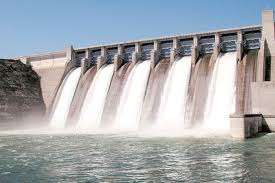ISLAMABAD: The Pakistan needs to gradually shift towards the renewable resources of energy to respond to various environmental challenges.
Energy sector experts said this during the public private dialogue ‘Role of Thar Coalfield in Socio-Economic Development of the region: Prospects and Challenges,’ organized by sustainable Development Policy Institute (SDPI), here on Saturday.
Director General (Coal), Private Power & Infrastructure Board (PPIB), Mr Ali Nawaz, highlighted that the solar and wind energy for Pakistan is intermittent due to their seasonal and temporal non-availability and hence, the country needs to rely on coal for increasing indigenization and energy security. Mr Faisal Sharif Watto, from PPIB, remarked that the government’s plan for inclusion of 30% renewable and 30% hydro energy in the system by 2030 is very welcoming approach. However, still country needs to have a long-term baseload fuel and the best option currently available is to move towards indigenous coal reserves.
Simon Nicholas, Energy Expert at the Institute for Energy Economics and Financial Analysis (IEEFA), while sharing global experience and practices with the participants, said that coal to gas (CTG) and coal to liquid (CTL) projects for Pakistan are not economically feasible. Hence, it will further put Pakistan’s energy sector under financial constraint, especially the debt from China. A better plan for Pakistan would be to focus on grid independence, better use of existing capacity, focus on grid losses, and divert investments towards green of CPEC through wind and solar technologies, he added.
While highlighting community-based development, Mr Yasir Mumtaz Khokhar, Director Finance- Public-Private Partnership Unit (PPPU), Sindh, said that Thar has seen huge socio-economic development after discovery of coal reserves. The constantly increasing circular debt of Pakistan is resulting in high power tariffs and thus, the focus should be on bringing the prices down through indigenous coal which is cheaper than other fossil fuels.
Ms Haneea Isaad, Research Associate Rural Development Policy Institute (RDPI), highlighted that Thar is among one of the most water scarce areas and that mining processes of coal have led to several environmental issues including grazing, land problems, and water pollution. While discussing Coal to Liquid and Coal to gas projects, she mentioned that this will further aggravate these problems since these projects require around 3-4 times more water resource that conventional methods. Ms Sabina Khurram Jafri,
Senior Joint Director-State Bank of Pakistan (SBP), was of view that although reliance on Thar coal will increase indigenization, Pakistan needs to be more conscious about its long-term economic impacts and environmental issues.
Imran Sabir, from Sindh Environmental Protection Agency (SEPA), was of view that the Environmental Impact Assessment (EIA) of all infrastructure as well as power projects in Thar have been carried out by SEPA and we believe that these projects have made a positive socio-economic impact on local Thari population.
Shams Uddin Sheikh, CEO-National Resources Limited, and Former CEO-Sindh Engro Coal Mining company (SECMC), was of view that although carbon and ecological footprints of coalfield development are undeniable, best efforts had been made to deploy best technologies that were available. Energy
Sector expert Ms Amina Ansari opined that since China is under a very high global pressure of reducing coal, State Bank needs to analyze whether it is ready to fund such projects or not.
Dr Hina Aslam, Research Fellow, SDPI, while moderating panel discission, earlier highlighted various aspects the development of Thar Coalfield and its impacts on socio-economic development of the region along with its ecological footprints.

